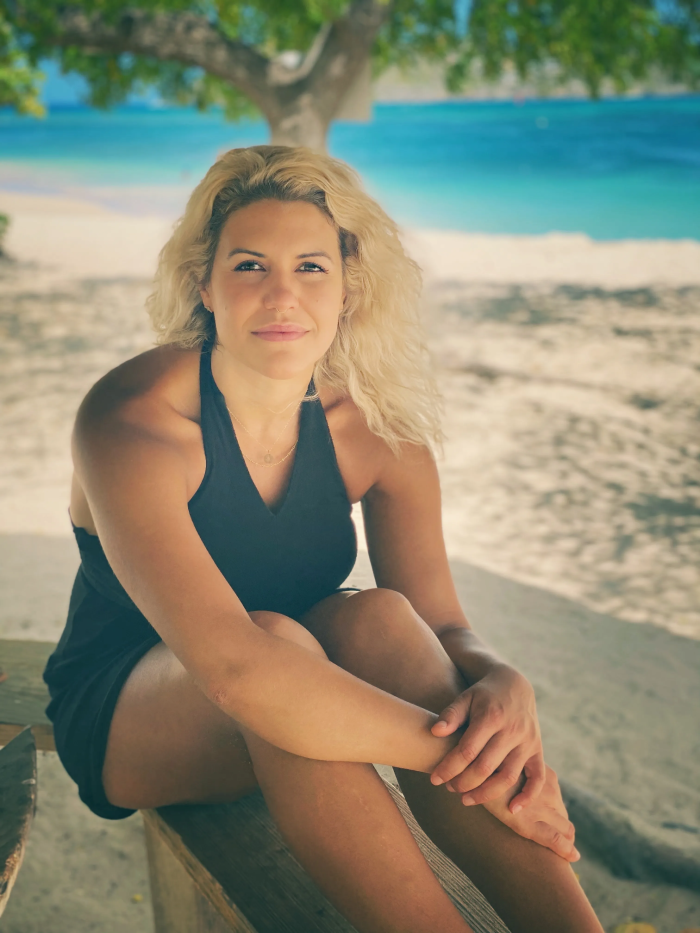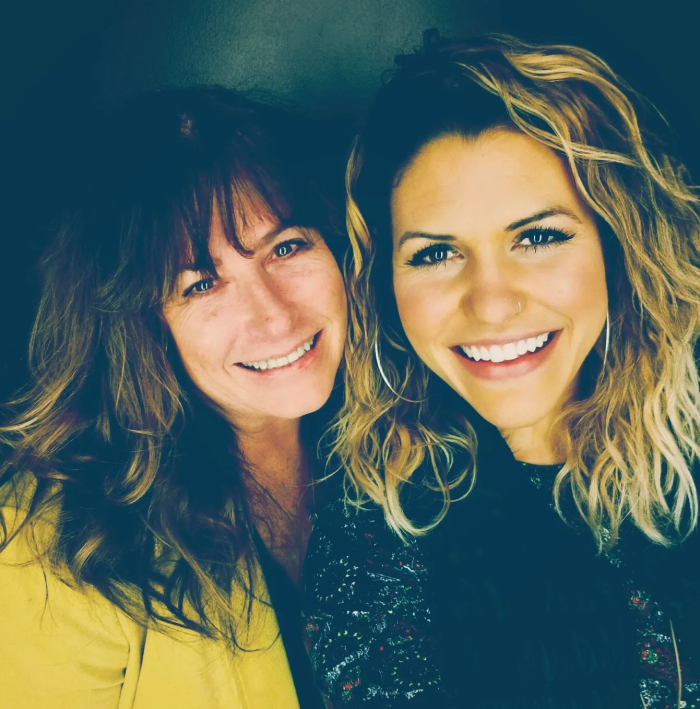One of the only constants in our world is loss, and grief is an experience that every one of us will share in one form or another throughout our lives.
I have had limited experiences with it until the last few years, and most recently when my best friend’s sudden passing swallowed me whole.
Grief is volatile and all-encompassing, physically and emotionally, and we are at its mercy. In this post, I speak about things I felt in the first 48 hours of tragedy that I continue to feel in differing ratios every day. Much of it was transcribed from journal entries written in the throes of the early moments. This is not to be confused with the grief cycle—which is a great tool for the larger scope of the grief process. What I’m sharing now is the gritty and raw reality I experienced almost immediately.
I welcome you into this space because I believe there is healing in sharing, for all involved, and simply composing this has already given me the ability to write the more hopeful “next steps” included further in.

Why does grief hurt so much?
Because reality is a brick wall.
It’s more than denial. It’s not lying to yourself or refusing to believe it’s true. It’s knowing that it’s true and repeatedly throwing yourself against the brick wall anyway. You know that no matter what you say or how hard you throw yourself, reality won’t change. The brick wall won’t budge, but we compulsively test that wall over and over, almost to prove to ourselves that it is real. “She’s gone. She’s gone. She’s gone…” It’s as if our subconscious knows the shock and disbelief only have one remedy, and that is to lean in. So we keep meeting that wall, and when we crack, it is not blood, it is tears. A momentary physical relief of pressure.
Because it’s so physical.
Be it paralyzing shock, shaking, crumbling, sobbing, or numbness, to name a very few—physical symptoms arise suddenly and without warning. We find ourselves acting and feeling incredibly intensely and without choice. I don’t know when a “wave” will hit, or how, and it’s impossible to prevent no matter how socially inconvenient. I have temporarily lost trust in my own body, and will continue to live in this state (and in waterproof mascara) for the time being. The uncontrolled onslaught of feelings and symptoms makes the personal grief experience a trauma in and of its own.
Because you’re helpless.
Caught in a loop of wishing and regretting. Giving anything to go back in time to make something different. Could I have encouraged them to make that doctor’s appointment, to not ignore the pain, to not work so hard…we even go so far as to convince ourselves something miraculous was possible, like walking through their door to check on them from seven hours away. Time only goes forward, not back, and you know you didn’t do any of those things. Sitting in the helplessness of this can be the pinnacle of discomfort. An unbearable desperation. I found myself physically writhing, yearning for the opportunity to have done something differently. Acceptance creeps in, but it comes at a cruel pace.
Because of the confusion.
“This can’t be real,” “It’s impossible,” “When will I wake up?” or “When will they discover that this is all a mistake?” Loss is completely disorienting. I found that I was either functioning at a frighteningly normal level or at a dead halt, unable to remember where I was. Forgetting to eat, to check my phone, to lock the door—all the things that would normally be second nature got lost in the overwhelm. I stood in the kitchen having forgotten where the plates were kept. Your brain is so deeply in “survival mode” that it totally misses otherwise autopilot-level tasks.
Because you’re aimless.
No one tells you how to “do grief,” and I don’t think anyone can. I agree with those who say there is no right or wrong way, but in the early stages, I was desperate for instruction. “Call this person, write this down, take a bath, take a nap, reach out to family, alert friends…” When is it appropriate to see her family? When do you make funeral arrangements? How involved should I be? Left to my own devices, I was lost and worried I wasn’t doing it right. Some moments, I could do nothing and others, I needed to be doing anything—but I didn’t know what.
Because you obsess.
Every minute is spent sitting in these feelings and studying all aspects of this loss. Never straying. Imagining different scenarios, possibilities, details. Wondering, hypothesizing: “What were our last words,” “What would she think of this?” or “What was her last meal, activity, phone call?” It was the last thing I thought about before bed, the first thing I remembered in the morning, and it still weaves its way into every dream. In the immediate aftermath, there is truly no relief. I found myself compulsively replaying the scenario in which I was told of her death. Every detail of my walk outside of the gym, the sunlight, the sidewalk, and every word before and after the sentence, “Kim died this morning.” It’s still on a loop in my head in the background, finding the quiet unoccupied moments to step forth again. I’m not sure how long this will last.
Moving Forward
While there is no antidote for any of these experiences, I’ve come to trust there are things that allow this process to move more smoothly through life, and perhaps lessen in intensity a little sooner. (And because a lot of blogs and podcasts told me so.)
Feel it. Lean in. Don’t bottle it up or pretend. I have been told many times throughout my life that feelings suppressed never go away. They will resurface at inopportune times until they are let to run their course. As David Kessler puts it, “healing is in the feeling.”
Share it. Healing is in shared experiences, and in the understanding of others. The universality of loss and pain brings a closeness that can hardly be recreated. It is the source of comfort and eventual ease of pain. This is not the time to shut people out, it’s the time to lean on and allow your support to hold you up. (Cue this blog.)
Be patient. Advice I’ve been given that is so simple yet so true: “Things get better.” Those who have gone before us in this journey say that time is the great healer, and I find relief simply trusting them. This process will involve grace and patience with ourselves—it won’t happen quickly or easily.
Keep going. And our next mission: we must continue to love fully and deeply. Despite our new, sobering awareness of life’s impermanence, we must proceed openly, knowing that we still have a great number of other people in our lives whose departure could create this same devastating experience for us, maybe even more so. It must soften us, not harden us. That is the challenge and also a great invitation. This pain insists that we live in full presence, without hesitation, and savor every moment with our special people.
Kim encouraged me to “seize the day” in every aspect of life, and because of that, she gave me the gift of no regrets when I said goodbye. Again I’ll reference David Kessler who said (paraphrasing) “there’s only one thought worse than the death of my son, and that’s the thought of never having known him.”
Holding you all,
Diana
~
Please consider Boosting our authors’ articles in their first week to help them win Elephant’s Ecosystem so they can get paid and write more.
 Share on bsky
Share on bsky






Read 12 comments and reply